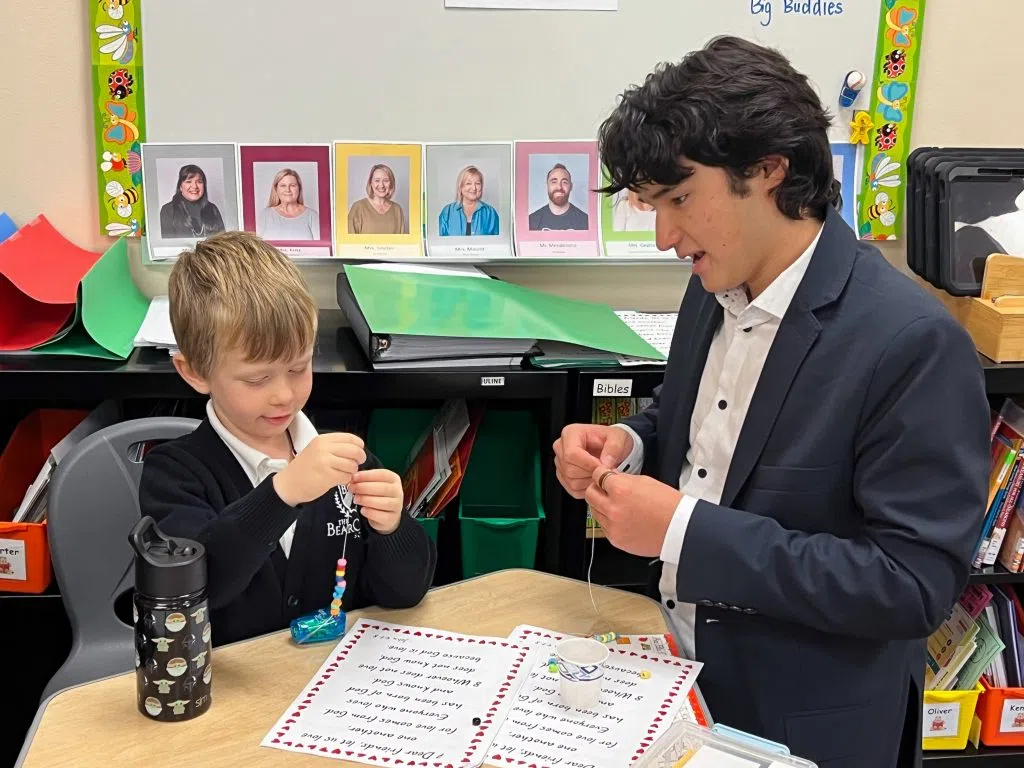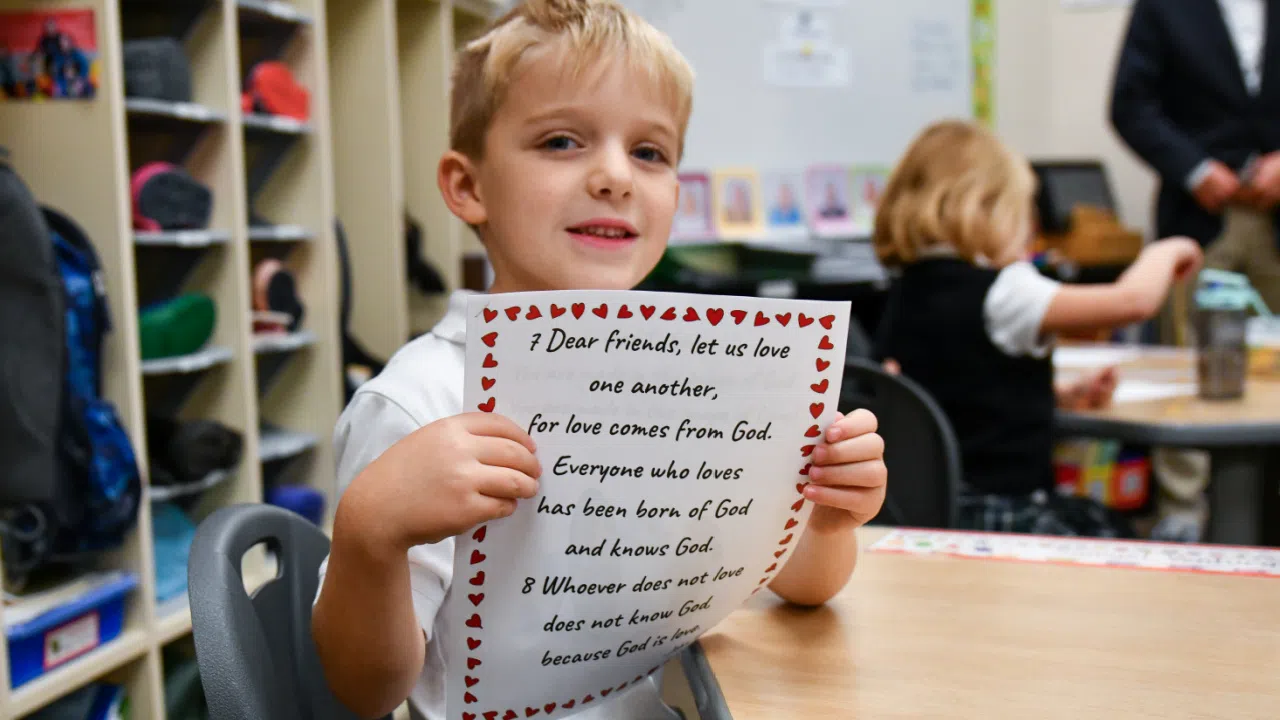“Mrs. Gephart, want to hear me say Dromio of Ephesus’s lines?” A few years ago, Caleb, who is now in Middle School, approached me with enthusiasm as he walked down the Lower School hallway while reciting the lines for his classmate’s part in Shakespeare’s The Comedy of Errors. He delivered them perfectly, with expression and with ease. The work he had done during his Lower School years developing the joy and capacity to memorize quickly allowed Caleb to capture Shakespeare’s beautiful language beyond his own part in the play. It was clear he delighted in this accomplishment.
This post is sponsored by The Bear Creek School.
The patterns and repeated actions we engage in shape who we are. In the church, the liturgies we participate in can allow God to shape our souls. In a school, participation in repeated actions shape students’ thinking, desires, and worldviews as well. For this reason, memorization of facts, patterns, scripture, poetry, play lines, rules, and strategies are prioritized in Lower School. The grammar stage in a classical education framework acknowledges this special season in the life of young learners.

The Bear Creek School
God designed us to experience good things in our brains (truth, beauty, and goodness), and some of the benefits of memory work are:
- It stretches and builds our brain like a “muscle.” Build this “muscle” in younger years, and the memory work ahead is much easier. Young children are able to do this so effortlessly!
- It improves our knowledge and use of English syntax.
- It shapes and builds our vocabulary.
- It builds the capacity for connections and creative thinking and helps us enjoy and delight in words and their meanings.
- It propels student thought, giving them fluency with key information, data, and facts that are used on a routine basis and freeing their minds to do more complex, innovative thinking.
Susan Bauer, the author of the Story of the World series and recent speaker at The Bear Creek School, says memorization “builds into children’s minds an ability to use complex English syntax.” She describes this as a child’s language store and says memorization fills “the language store with a whole new set of patterns.”

The Bear Creek School
In the halls of Bear Creek, you will hear and experience truth, beauty, and goodness from the mouths of our sweet Lower School students as they perform their memory work on Friday mornings. If you ask one of our poem and verse volunteers what it is like, I am sure they will tell you they are blessed!

The Bear Creek School
PIN THIS!
By Kristen Gephart. Kristen is Lower School Division Head at The Bear Creek School. She is passionate about the mission of The Bear Creek School and loves the intersection of faith and learning that is pursued here. Kristen believes the impact of a community of adults invested in students’ lives at a young age can impact them forever! She holds a B.A. Speech Communication at the University of Washington and an M.I.T. at Seattle University.
At The Bear Creek School, a Christian classical education serves as a powerful framework for teaching and inspiring students. It exposes students to quality by introducing them to the great minds, great works, great events, great discoveries, and great art of the centuries. We believe knowledge which endures is worth student attention; we believe studying minds of the past helps us understand and shape our future; we believe wisdom is developed by reflectively considering ideas in light of the Christian worldview.

















